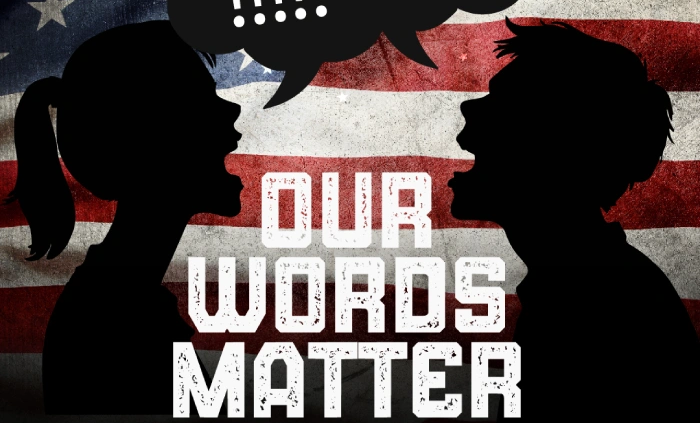Our Words Matter
As Martin Luther King Jr. poignantly stated in “Give Us the Ballot, We Will Transform the South,” “So long as I do not firmly and irrevocably possess the right to vote, I do not possess myself. I cannot make up my mind—it is made up for me. I cannot live as a democratic citizen, observing the laws I have helped to enact—I can only submit to the edict of others.”
Our nation stands at a critical juncture, facing one of the most fiercely contested presidential races in recent history. As millions strive to become informed about the pressing issues on the ballot, the democratic process has been marred by a troubling surge in violence.
In recent weeks, an apparent assassination attempt on a former U.S. President has further intensified the already toxic political climate. Adding to the turmoil, President Joe Biden’s decision to withdraw from the presidential race and endorse Vice President Kamala Harris as the Democratic nominee has ignited a wave of heated and violent debates.
Since her nomination, Vice President Harris, a Black and South Asian woman, has faced intense public scrutiny from various prominent figures. Her decision not to have biological children has drawn derogatory comments from the Republican Vice-Presidential nominee, igniting a divisive discussion that highlights the significant societal pressures and challenges women face in both their professional and personal lives.
The public assault on her humanity has left many Americans feeling angered and pained. Nonviolence teaches us that every individual has an inherent right to self and we each have a duty to protect, honor, and support one another. When we engage in actions or rhetoric that diminish each other’s humanity, it not only exacerbates existing conflicts but also undermines the principles of respect, equality, and equity that are fundamental to a just society.
Similarly, derogatory comments about the Republican Party, such as describing them as “weird,” continue to intensify strife between political leaders and the American people who look to them for leadership. This type of language not only deepens political divisions but also undermines the potential for constructive dialogue and mutual understanding. The language we use to address and describe one another is as significant as our policies, and it is imperative to remind ourselves of this reality.
In a climate already rife with division, it is crucial to focus on policies that address our society’s most pressing issues while upholding the dignity of even our staunchest political adversaries. The current political environment, marked by heightened polarization and frequent personal attacks, calls for a renewed commitment to respectful discourse. As we move forward, we must remember that participating in the democratic process is not merely about casting votes but about reaffirming our commitment to a more just, humane, equitable, and peaceful world. By engaging in constructive dialogue and respecting each other’s personhood, we can work toward solutions that benefit all and strengthen the very fabric of our democracy.
Moreover, the impact of our words extends beyond immediate political debates. They shape public perception and influence broader societal discourse. When our leaders’ resort to derogatory language, it sets a precedent that can trickle down to everyday interactions among citizens, further entrenching divisions. In this hour, we must collectively ask our political leaders to model the behavior they wish to see in society, promoting a culture of respect and empathy.
By focusing on constructive dialogue and respecting one another’s personhood, we can work toward solutions that benefit all and strengthen the very fabric of our democracy. This approach not only addresses the immediate challenges but also fosters a more inclusive and cohesive society in the long term. With this mindset and commitment, we move closer to realizing the Beloved Community.

